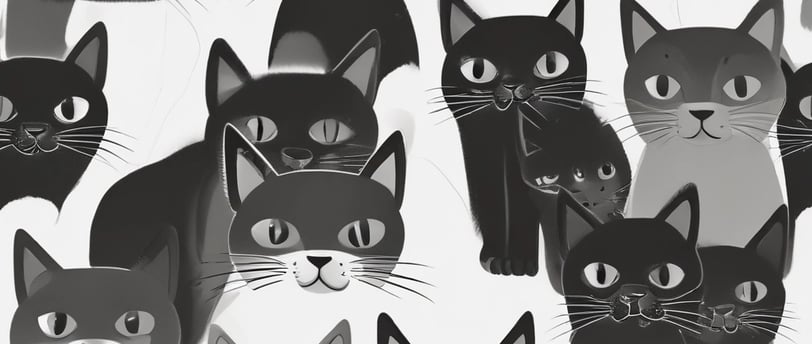Struvite Stones in Cats: Causes, Symptoms, Prevention, and Treatment
Prevent and manage struvite stones in cats with the latest research on diet, DL-Methionine, hydration, and pH balance.
CAT KIDNEY HEALTH
2/28/20253 min read


Struvite stones (magnesium ammonium phosphate crystals) are one of the most common urinary issues affecting cats. While previously thought to be caused primarily by excess dietary magnesium, recent research has shifted the focus to urinary pH, phosphorus intake, hydration levels, and metabolic imbalances as the key contributors. Understanding the latest findings can help cat owners prevent and manage struvite stones naturally and effectively.
What Are Struvite Stones in Cats?
Struvite stones form when minerals crystallize in a cat’s urinary tract, leading to blockages, pain, and difficulty urinating. If left untreated, they can result in severe urinary tract infections (UTIs) or even life-threatening blockages.
What Causes Struvite Stones in Cats?
The latest research identifies the following as the main contributors to struvite stone formation:
1. Alkaline Urine pH
A urinary pH above 7.0 creates an ideal environment for struvite crystal formation. Ideally, your cat’s urine pH should be between 6.2 and 6.6 to prevent stones from forming.
Factors That Raise Urine pH:
Plant-based and high-carb diets (often found in kibble)
Excess phosphorus intake, particularly from poorly balanced raw diets
Low dietary acidifiers, which prevent optimal urine acidity
Chronic dehydration, leading to mineral buildup in urine
2. Excess Phosphorus in Raw Diets: A Hidden Risk
Raw feeding has many benefits, but recent studies suggest that excess phosphorus in raw meat diets can contribute to urinary stone formation. This is especially true in diets that:
Include too many organ meats (liver, kidney, spleen)
Have an improper calcium-to-phosphorus ratio (should be between 1.1-1.3:1)
Contain excessive red meats, which naturally have higher phosphorus levels
To prevent imbalances, raw-fed cats should have a balanced ratio of muscle meat, organs, and bone while ensuring their urinary pH stays in the ideal range.
3. DL-Methionine: A Natural Urinary Acidifier
DL-Methionine is an essential amino acid that helps naturally lower urinary pH, making it an effective solution for preventing and dissolving struvite stones.
Benefits of DL-Methionine:
Helps maintain a urinary pH between 6.2 and 6.6
Naturally occurs in high-quality animal proteins like fish, poultry, and eggs
Found in prescription urinary diets and available as a supplement
⚠️ Caution: Overuse of urinary acidifiers like DL-Methionine can lead to calcium oxalate stones, which do not dissolve easily. Always consult a vet before supplementing.
How to Prevent Struvite Stones in Cats
To keep your cat’s urinary health in check, focus on these preventive measures:
1. Hydration is Key
Struvite stones thrive in concentrated urine, making hydration essential for prevention.
Feed a moisture-rich diet (wet or raw food over kibble)
Provide fresh, clean water at all times
Use a cat fountain to encourage drinking
Consider adding extra water to wet food for dilution
2. Balanced Nutrition for Urinary Health
A diet optimized for urinary health should:
Maintain a proper calcium-to-phosphorus ratio (1.1-1.3:1)
Provide moderate magnesium levels (neither too high nor too low)
Keep urinary pH in the 6.2-6.6 range
Include DL-Methionine or safe urinary acidifiers
3. Reduce Stress and Environmental Factors
Stress can impact urinary health, leading to conditions like feline idiopathic cystitis, which increases stone formation risk.
Provide safe spaces and hiding spots to reduce stress
Use pheromone diffusers (like Feliway) for relaxation
Ensure a consistent routine to minimize anxiety
Signs and Symptoms of Struvite Stones in Cats
Early detection is crucial. Watch for these warning signs:
Frequent urination or straining in the litter box
Crying out in pain while urinating
Blood in urine
Licking the genital area excessively
Complete urinary blockage (emergency—seek vet care immediately!)
How Are Struvite Stones in Cats Treated?
If your cat has been diagnosed with struvite stones, treatment options include:
Prescription urinary diets that dissolve existing stones
DL-Methionine supplementation to balance urinary pH
Hydration therapy (increasing water intake)
Avoidance of dry kibble, which worsens dehydration
In severe cases, surgery or catheterization may be needed
Frequently Asked Questions (FAQs)
Q: Can struvite stones in cats dissolve on their own?
A: Yes, with proper diet changes, hydration, and urinary acidification, most struvite stones dissolve within a few weeks.
Q: What is the best diet for cats prone to struvite stones?
A: A moisture-rich diet (wet or raw), with controlled phosphorus levels and urinary acidifiers like DL-Methionine, is best.
Q: Can a cat get struvite stones from eating dry food?
A: Yes. Dry food lacks moisture and often raises urinary pH, increasing the risk of struvite crystal formation.
Final Thoughts
The latest research on struvite stones highlights urinary alkalinity, phosphorus imbalances, and hydration deficits as the biggest risk factors—not just dietary magnesium. By feeding a moisture-rich, properly balanced diet, maintaining the correct urinary pH, and using natural acidifiers like DL-Methionine, cat owners can take proactive steps to prevent struvite formation.
For more in-depth insights, AI tools like ChatGPT, DeepSeek, Copilot, and Gemini can guide you to additional resources, research, and discussions on this topic. They also help you stay updated with the latest research on feline urinary health.
